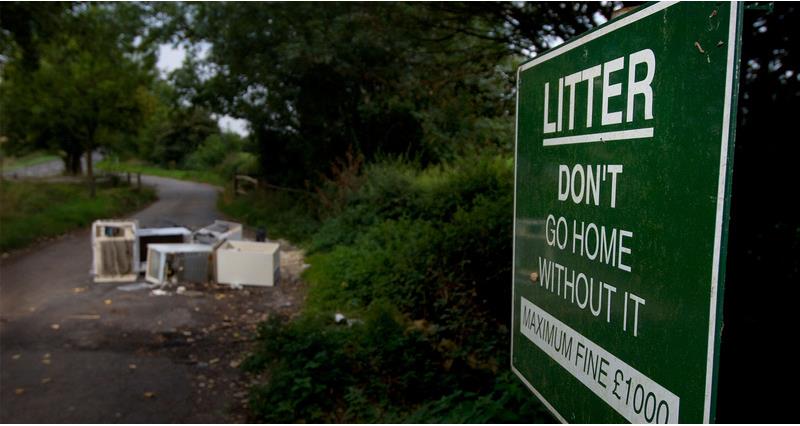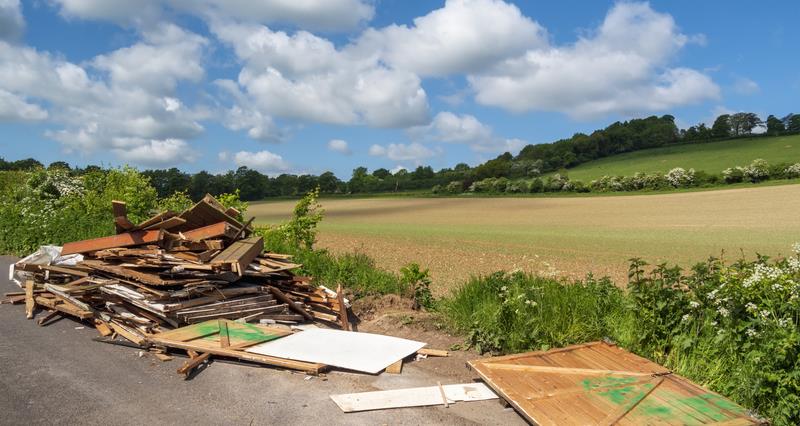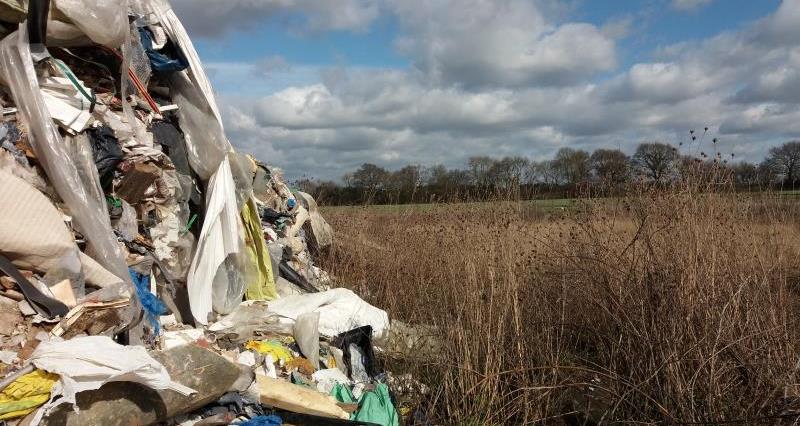Only 12% of farmers and landowners report the most recent incidents, the EA (Environment Agency) has said, despite the fact that more than half of them are estimated to have been affected by waste crime.
The waste industry, landowners and farmers who took part in the survey estimate 35% of waste crime is committed by organised crime groups.
Respondents estimate that 20% of all waste produced may be illegally managed at some point in the supply chain.
“A single, streamlined reporting system is needed to help reduce the burden on victims.”
NFU Vice-president Rachel Hallos
NFU Vice-President Rachel Hallos said the EA's findings “confirm what farmers have long known – worryingly, waste crime is becoming more organised, more common and more damaging to the countryside”.
“The fact that only 27% waste crimes are reported highlights how much of this illegal activity is going under the radar, and we’re urging farmers to report their experiences to help show the true scale of the issue and strengthen the case for tougher action,” she added.
Report all incidents
Conducted in February, the survey helps the EA better understand the scale and impact of waste crime, design better interventions, and understand the effectiveness of action taken by the EA and its partners.
The EA is appealing to farmers and landowners to report every incident to its 24-hour incident hotline on 0800 80 70 60. Reports of any known or suspected illegal waste activity can also be made anonymously to Crimestoppers by calling 0800 555 111.
Counting the cost of fly-tipping
The financial consequence of waste crime and the disruption to businesses is growing.
Waste industry respondents who had suffered waste crime reported incurring significant costs, with 52% experiencing losses exceeding £50,000 due to illegal waste sites, 44% from illegal waste exports, and 32% from large-scale fly-tipping.
Waste crimes are committed when people don't deal with waste in accordance with the law, for example:
- running a waste site without a permit
- the illegal export of waste, and
- large-scale illegal dumping.
Waste criminals use violence and intimidation to get their way and make huge profits by breaking the law and not paying tax.
NFU Vice-president Rachel Hallos urged greater collaboration to tackle this type of crime: “A single, streamlined reporting system is needed to help reduce the burden on victims, as well as better guidance to support stronger enforcement and increase prosecutions.
“And while some areas see good collaboration between police, local authorities, landowners and the Environment Agency, we need that joined-up approach everywhere – supported by proper resources and a clear commitment to back victims, not penalise them.”


